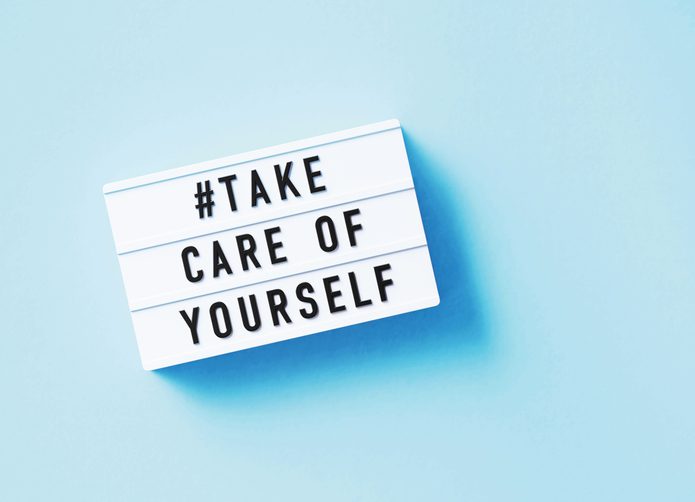If you’ve been diagnosed with an anxiety disorder, you know how much professional treatment can help. Medications can help take the edge off, and psychotherapy can help you learn how to adjust your thinking so that it doesn’t trigger you.
But you probably also know that medication and therapy aren’t always enough to help with the day-to-day anxieties that persistently arise. This is where self-care comes in.
What is Self-Care?
The National Institute of Mental Health (NIMH) defines self-care as follows: “Self-care means taking the time to do things that help you live well and improve both your physical health and mental health.” They note that self-care can help you manage stress, which in turn boosts your energy level and lowers your risk of illness.
In other words, self-care is not selfish indulgence. While it may include some indulgences, it is more about making lifestyle changes for the good of your long-term well-being. These changes may not always be easy; they require, at heart, a commitment to taking responsibility for your own health and happiness.
When it comes to managing anxiety, certain components of self-care can be especially helpful.
Two Self-Care Practices for Anxiety
1. Breathe
Sounds easy, right? Everyone breathes. But when you struggle with anxiety, working with the breath is the most direct line to calm. “Working with the breath” can happen in several ways.
- When you’re feeling anxious or panicky and your thoughts are spinning out of control, bring your attention to your breath. Don’t try to change it. Just notice it. What is its quality (shallow, ragged, light, heavy, etc.)? How long are the exhales and inhales? Where do you feel it in your body (throat, chest, diaphragm, belly)? Just pay attention to it. As you observe the breath, you’ll notice that it gradually slows down and deepens.
As your anxiety begins to lessen and the breath deepens, place a hand on your abdomen. Focus on moving the breath in and out of the lower lungs. Your hand should lift as you inhale, fall as you exhale.
- Read about a variety of other calming breath techniques and choose one or two that work for you. Use these techniques when you’re feeling anxious. Breathwork relaxes the heart rate and lowers blood pressure.
- To make breathwork a habit, practice it daily when you’re not feeling anxious. This leads to tip #2…
2. Meditate
If you’re practicing paying attention to your breath, you’re meditating. Make meditation part of your daily routine. You might sit calmly and focus on your breath for 10 minutes in the morning and 10 minutes again before bed. Or, you might meditate for a few minutes before getting out of bed in the morning or before you go to sleep at night. Choose the time and duration that work for you, but commit to it. Just 10 minutes of meditation a day can do wonders for your health.
It’s easy to get discouraged with meditation when it doesn’t go “smoothly.” You may think that if you can’t stop thinking or fidgeting, you’re not doing it right and might as well give up.
Part of the commitment to meditation is trusting that it IS “working” even when it doesn’t feel that way. If you find that you just can’t stop thinking, try to relax and let your brain do its thing. Sit back and watch. Try not to judge yourself or your thoughts. Remember these three words:
- Observe
- Detach
- Surrender
There are many kinds of meditation, some of which use sounds, mantras, or objects to help with focus. But if you have an anxiety disorder, especially obsessive-compulsive disorder, you might find that keeping it simple is best. Or, you might find that guided meditations are a nice way to get started or to use in particular situations.
Wait–is That All?
Yes, just two tips: breathe and meditate. We would argue that these two aspects of self-care provide a foundation from which good health emerges naturally. When we’re calm and at peace, we tend to make decisions that support our overall health.
If you or a loved one struggles with an anxiety disorder, Highland Hospital can help. Our team in West Virginia offers the compassion, professionalism, and evidence-based treatments that will help you embark on a path to greater peace in your day-to-day life. Call today to speak with an admissions specialist.










